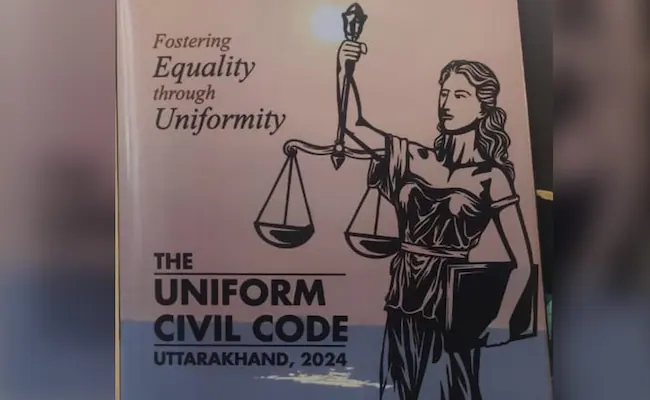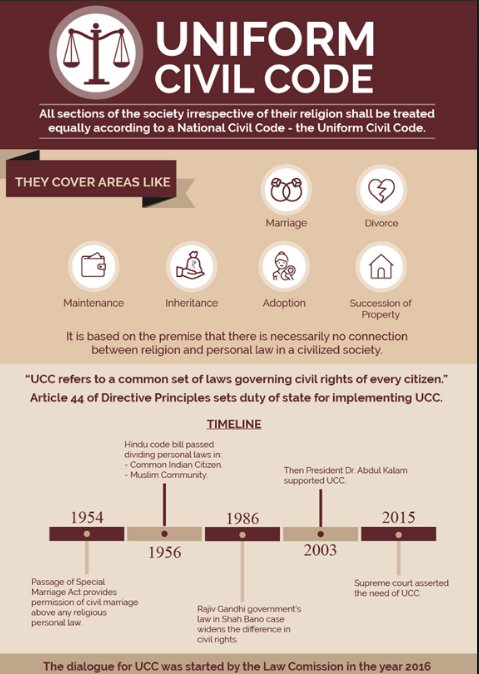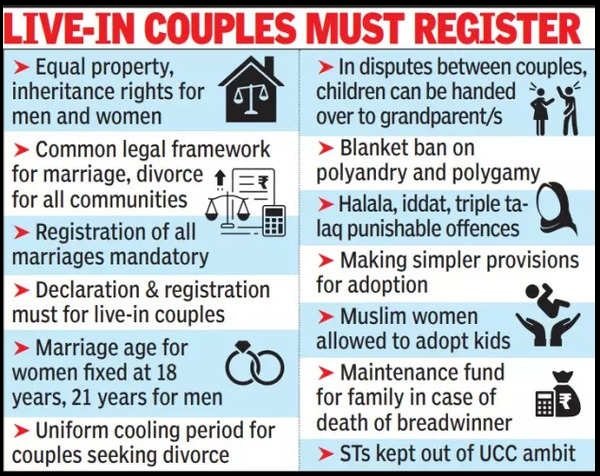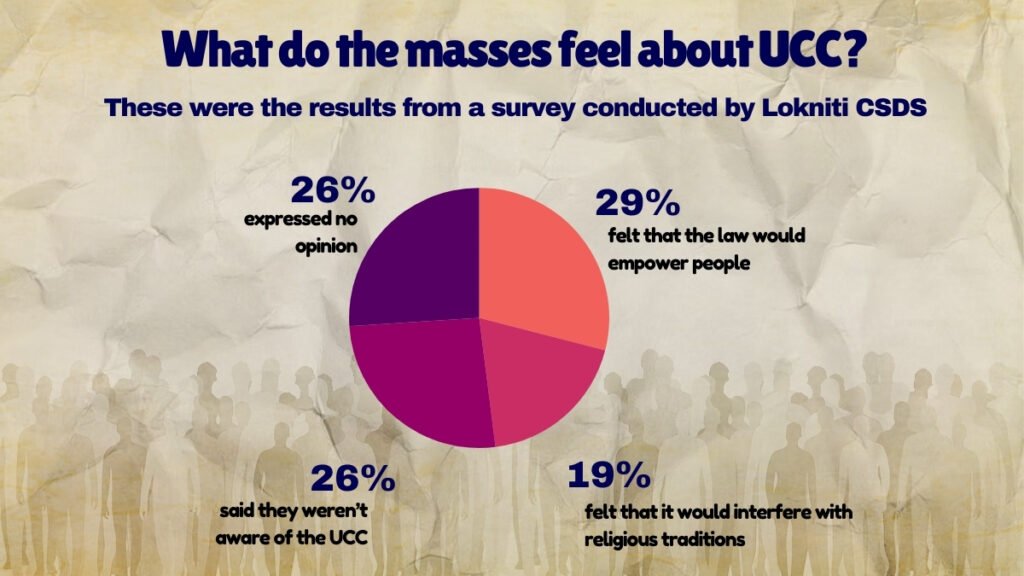In recent times, the term “UCC Bill” has been buzzing in the legal and social spheres in India, sparking curiosity and discussions. What exactly is the UCC Bill, and why does it hold significance in the Indian context? Let’s embark on a journey to demystify this legal term and understand its implications.
What Is UCC Bill in India?, The UCC Bill attempts to make the personal laws of Indians relating to marriage, divorce, inheritance, or adoption uniform in nature. It attempts at bringing about equality and fairness by substituting diverse religious laws with a uniform code of law.

| Aspect | Details | |
|---|---|---|
 | What is UCC? | A proposed law to unify personal laws across religions in India. |
| Objective | Replacing the individual religious laws with a common set of law for all citizens. | |
| Current Status | Not yet implemented; remains in the area of debate and discussion. | |
| View of Supporters | The protagonists argue that it ensures equality and secularity. | |
| Opponents' View | Critics feel that it is a threat to cultural and religious diversity. |
Understanding UCC: Unveiling the Basics
The UCC, or Uniform Civil Code, is a concept that advocates for a singular set of laws governing personal matters for all citizens of India, irrespective of their religious beliefs. The idea is to replace the existing diverse personal laws based on religious practices with a unified legal framework.
The Genesis of the UCC Bill in India
The roots of the Uniform Civil Code in India can be traced back to Article 44 of the Directive Principles of State Policy in the Indian Constitution. This article suggests that the state shall endeavor to secure a Uniform Civil Code throughout the country. While it remains a directive principle and not a mandate, the discussion around its implementation has been a part of ongoing legal and societal discourse.
The Shah Bano case, a landmark legal dispute in India, revolves around the issue of maintenance for divorced Muslim women. In 1985, the Supreme Court of India delivered a historic judgment in favor of Shah Bano, a Muslim woman seeking maintenance from her ex-husband, under Section 125 of the Criminal Procedure Code.Shah Bano, a 62-year-old woman, was divorced by her husband in 1978 after several decades of marriage. Struggling financially, she approached the courts seeking maintenance. The Supreme Court ruled in her favor, affirming her right to receive alimony beyond the iddat period (the period after divorce during which a woman is entitled to maintenance).
However, the judgment sparked a nationwide debate and led to political and religious controversies. The case raised questions about the intersection of personal laws and fundamental rights. The then Rajiv Gandhi-led government succumbed to pressure from conservative factions and passed the Muslim Women (Protection of Rights on Divorce) Act in 1986, effectively overturning the Supreme Court’s decision and limiting the duration of maintenance for Muslim women.
The Shah Bano case remains significant in Indian legal history for highlighting the complexities of balancing religious practices and constitutional rights, especially concerning the rights of Muslim women. It spurred discussions on the need for a uniform civil code to ensure equal rights for women of all religious communities in matters of personal laws.

Significance and Controversies Surrounding the UCC Bill
The UCC Bill aims to promote equality and justice by ensuring uniformity in laws related to marriage, divorce, inheritance, and adoption across all religions. Proponents argue that a UCC would eliminate disparities, fostering a more cohesive and just society. However, it has been a subject of intense debate, with critics expressing concerns about potential infringement on religious freedoms and traditions.
It is important because, no Indian state has implemented UCC since independence. One state which is GOA already has it. Goa’s UCC bill dates back to its time under the Portuguese rule. It is unprecedented in Independent India. The UCC bill is template for the future.

Current Status and Future Implications(Uniform Civil Code in which state of India)
As of the current date, the Uniform Civil Code (UCC) has been successfully implemented in Uttarakhand, India. This marks a notable development as Uttarakhand becomes one of the regions in the country where the UCC is now in effect, representing a step towards uniformity in personal laws across different religious communities. The implementation of the UCC in Uttarakhand reflects a significant move towards creating a standardized legal framework for matters such as marriage, divorce, inheritance, and adoption.
The UCC Bill proposes a common law on marriage, divorce, inheritance of property, adoption and live-in relationships for all citizens, irrespective of their religion.
Tribal Groups and scheduled tribes are excluded from the provisions.
Mandatory Registration: The Bill mandates the registration of any live-in relationship within the state’s jurisdiction, regardless of the couple’s residence.
Procedure: Partners must submit a statement to the Registrar, who will conduct an inquiry and either register the relationship or provide reasons for refusal.
Termination: Partners can terminate the relationship by submitting a termination statement.
Rights Available: Women deserted by their live-in partners can claim maintenance, and children born out of such relationships are considered legitimate.
Prohibition to Registration: Certain conditions, such as being within prohibited degrees of relationship, being married or in another live-in relationship, or involving a minor, are prohibited.
Ban on Polygamy and Child Marriage: The UCC Bill ensures a complete ban on polygamy and sets a uniform process for divorce.
Equal Rights to Women in Ancestral Property: Women have equal rights to ancestral property.
Minimum Age for Marriage: The minimum age for marriage is 18 for women and 21 for men across all communities.


